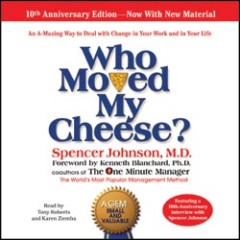The best way to increase memory and attention is to create the conditions so that they can fully express themselves. Over time, training these two faculties will become a habit, with all the resulting benefits.

Last update: July 12, 2021
Improve attention and memory is the goal of many of us. The reasons range from making the study faster and more effective, to strengthening these two skills that tend to weaken over the years.
Certainly our cognitive performance increases if we manage to strengthen memory and attention. Neither is equivalent to more intelligence, but they contribute decisively to making the most of it. In particular, our learning ability largely depends on attention.
In reality, improving attention and memory is primarily the result of a series of good habits, as well as constancy and self-discipline.
It can be achieved at any age although, of course, older age will require more effort. The strategies available to us are different. Let's see five.
“Focus only on what you want to attract to you. Remember, where your attention goes, your energy flows there. "
– Jack Canfield –
Strategies for training attention and memory
1. Avoid distractions and monotony
It never hurts to remember an apparently obvious aspect: to improve attention and memory it is essential to avoid distractions. We must avoid are above all noises and interruptions. Both negatively affect attention. And without attention, our ability to create memories is limited.
Keeping monotony away is just as obvious and basic. We know that the human brain has a precise attention span. For some tasks that require great concentration, the ideal is to take a break every half hour and change activities or surroundings every two hours.
2. Review and underline to improve attention and memory
One of the great difficulties in memorizing concepts is haste. We simply consider a reading finished when we finish the chapter or book. But this is not enough.
In the case of reading, in particular, it is very useful to underline the concepts that we consider most important or deserving to be remembered.
And at the end, it is good to review the steps we have outlined. This way we will get the most out of the reading. Something similar should be done with the other activities.
3. Avoid multitasking
Doing more things together is an increasingly common, but very negative habit. How many of us do a job while watching TV or listening to music with headphones and answering messages on cell phones at the same time?
All that is achieved in this way is not giving full attention to any of the activities in question. At the same time we are feeding anxiety or a sense of helplessness because we are unable to give our best. This is the worst situation for our memory.
Working in multitasking mode causes our ability to maintain attention to diminish much sooner, which impairs the ability to create reliable and accurate memories.
4. Create an ideal atmosphere to enhance attention
The environment plays a decisive role in jobs that require concentration. Context must help attentional control: good lighting, few distractions and a low noise level.
Likewise, a pleasant atmosphere predisposes the brain to better activity. The atmosphere is not only physical, but also emotional. A low-intensity emotional tone promotes attention control and the formation of memories.
It may seem paradoxical, but a negative emotion such as sadness is sometimes a factor that can improve concentration.
5. External aids for memorization
Attention and memory are closely linked. When a high level of attention is reached, memory processes are activated almost automatically.
In some circumstances, however, this does not happen, either because the degree of attention is not high enough or because the content to be memorized is more complex than usual.
Especially in the latter case, it becomes necessary to resort to external strategies to facilitate encoding or access to memories. The alternatives are different: from the preparation of flashcards, to the recording and playback of the text, to the use of concept maps.
Improving attention and memory is a matter of practice
As we said at the beginning, improving attention and memory is a matter of constant exercise. In other words, good habits. Adopting effective techniques and strategies will lead to immediately visible results in our cognitive activities.


























